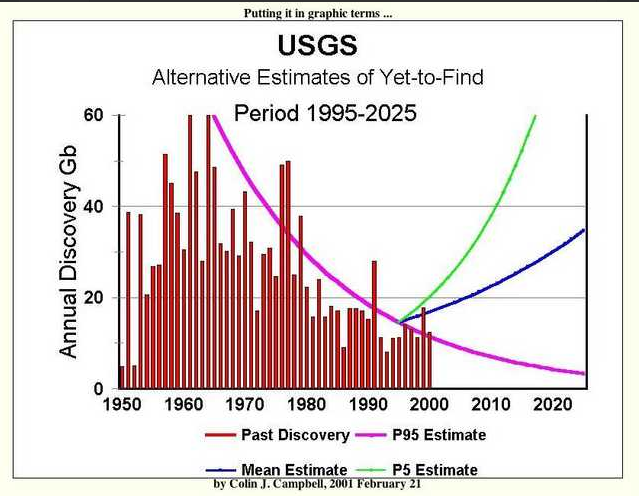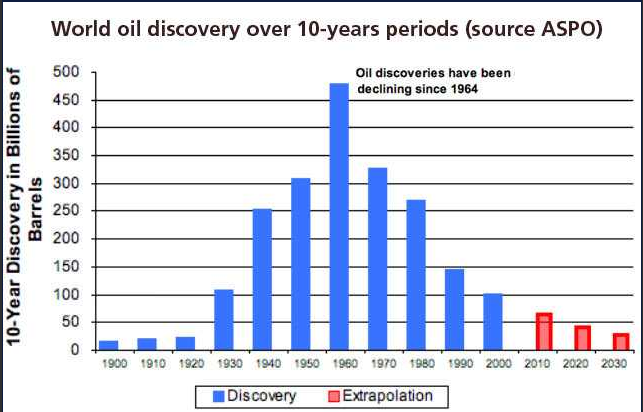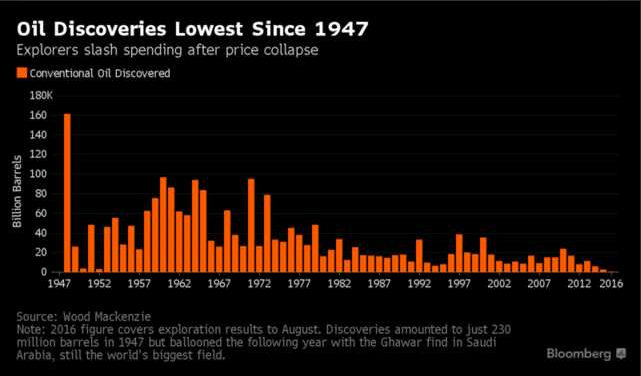INTRODUCTION:
Firstly, why the hell am I writing ‘this’? There have been countless attempts in recent months at articles towards something like a ‘Who is Nick Land?’, ‘What is Accelerationism?’ or ‘What is Neoreaction?’ or short essays attempting at a general encapsulation of a man whose work, as far as I can see, exists purposely in a Pynchonian cyber-scattering. When one comes across a fresh piece of Landian theory, they become a momentary data-archaeologist, raking through the datacombs in the hope of finding a measly piece to this chaotic assemblage. So, why? Because scatterings aggravate me, especially when it comes to monetized repetition, articles repeating vague biographical ‘facts’ and tit-bits without any real relation to the theory and critiques Land has made; simple frustratingly transparent semi-hagiographic pieces largely in relation to the mythos of Land’s time at Warwick. So I felt, in a way, that there should be at least some attempt at a ‘piece’ which not only discussed Land himself – only when needs be – but also extrapolated as to why there is such a following. A place in which 3 key ‘theory’ components which are in way ‘linked’ can be found together. I must stress, this is not my attempt to lump any 1 of these things with another, no, only that when one comes across Land’s work they hear of Accelerationism, and following that Neoreaction, and not always in that order, think of this as a kind of beginner’s guide, or overview of 3 very eclectic and scattered ideas.
I already understand that this piece, article, essay, word-mash, is going to come across as a complete gushing for my admiration of Land’s work, which in itself will utilize many of the stylistic choices and theoretical devices employed by Land himself, hopefully by the end of this piece, the reader, in part, will understand why the work of Land (& the CCRU) is so infectious – whether maliciously viral or not – and why it finds its way seeping into the smallest of academic and creative pursuits and quandaries. Take this piece as assemblage of Land, CCRU and all that gravitates towards, a place on the internet where you can (hopefully) find all you need to guide you down each dirty ‘n clean alleyway à la Land.
And with regards to the Dark Enlightenment/Neoreaction section, if by now it’s clear, simply talking or writing about something does not mean an affiliation or support for that ‘thing’, however toxic people may find it.
Discussion ≠ Support.
Enjoy, or don’t.
BIOGRAPHICAL HISTORY:
“Academics’ lives are seldom interesting…What do you know about me, given that I believe in secrecy? … If I stick where I am, if I don’t travel around, like anyone else I make my inner journeys that I can only measure by my emotions, and express very obliquely and circuitously in what I write. … Arguments from one’s own privileged experience are bad and reactionary arguments.” – Gilles Deleuze, Negotiations, pp. 11–12
Henrik Palmgren: “Introduce yourself to the audience a bit…”
Land: “Umm…well I mean…it’s hazy to me, so I think it will be hazy to other people.
For those familiar with Land the first quote by Deleuze is almost absurdly relevant. From my somewhat excessive research and reading into Land, one thing – amongst many – has become clear with relation to ‘biographies’, he’s not particularly interested in them, especially his own, what’s of importance is the work that came from that ‘era’ however trivia filled and ‘cool’ it was. That said this – sadly – is what interests some people – in part – about Nick Land.
And so: (all links are NON-referral)
Nick Land is an English philosopher and writer – Wikipedia.
1987-1998: Land lectures in Continental philosophy at Warwick university.
1992: The Thirst for Annihilation: Georges Bataille and Virulent Nihilism is published.
1995: Land becomes co-founder (along with Sadie Plant) of the Cybernetic Culture Research Institute (CCRU), a student-run collective unofficially ‘part’ of Warwick’s philosophy department.
1997: Plant leaves Warwick, as such Land becomes ‘leader’ of the CCRU.
1990’s: Land produces/publishes various short articles for & alongside the CCRU.
Unknown Year: Land collaborates on a text called Necrophysics with physicist Rhett Allain.
Unknown Year: Land moves to Shanghai
Unknown Year: Land becomes editor of Urbanatomy and teaches at the New Centre for Research & Practice.
Unknown Year: Land begins writing psychological horror.
2011: Fanged Noumena: Collected Writings 1987-2007 is published.
2014: Templexity: Disordered Loops through Shanghai Time is published.
2014: Phyl-Undhu is published.
2015: Chasm is published.
Land’s two current blogs are: Urban Future 2.1 and Outside In, alongside his twitter: @Outsideness
Also a link to his old blog posts: Old Nick Stuff, Hyperstition and CCRU
And I’ll leave this here as a sort of footnote, for those who can be bothered with the ‘cool’ biog-elements.
EARLY-LANDIAN PHILOSOPHY:
I shall try give a brief overview of elements of Landian philosophy, however, to succinctly explain ‘it’ in its entirety within say, 10,000 words would be difficult. Also, when talking about Land’s older word (pre-Shanghai) it’s important to keep this quote from the man himself in mind:
It’s another life; I have nothing to say about it – I don’t even remember writing half of those things … – An Experiment in Inhumanism, Robin Mackay
The Thirst for Annihilation: Georges Bataille and Virulent Nihilism is Land’s only full length academic book, and more than likely be will be his last, due to his distain with Western academia, whether or not there will be more theory-fiction, who knows?
The book itself is unlike any other ‘commentary on another’s work’ I’ve read, it’s far more lucid, much like a set of meditations on Kant, Bataille, Nietzsche, Marx and Schopenhauer, as opposed to a rigorous in-depth ‘critical’ analysis of Bataille’s work.
Being Sufficiently does a great job overviewing the work.
“Ever since it became theoretically evident that our precious personal identities were just brand-tags for trading crumbs of labour-power on the libidino-economic junk circuit, the vestiges of authorial theatricality wear thinner” – Land, Thirst, Preface XIII
“There is one simple criterion of taste in philosophy: that one avoid the vulgarity of anthropomorphism. It is by failing here that one comes to side with cages. The specifics follow straightforwardly:
“1. Thoroughgoing dehumanization of nature, involving the uttermost impersonalism in the explanation of natural forces, and vigorously atheological cosmology. No residue of prayer. An instinctive fastidiousness in respect to all the traces of human personality, and the treatment of such as the excrement of matter; as its most ignoble part, its gutter…
2. Ruthless fatalism. No space for decisions, responsibilities, actions, intentions. Any appeal to notions of human freedom discredits a philosopher beyond amelioration.
3. Hence absence of all moralizing, even the crispest, most Aristotelian. The penchant for correction, let alone vengefulness, pins one in the shallows.
4. Contempt for common evaluations; one should even take care to avoid straying accidentally into the right. Even to be an enemy is too comforting; one must be an alien, a beast. Nothing is more absurd than a philosopher seeking to be liked.” – Land, Thirst, Preface XX
Fanged Noumena: Collected Writings 1987-2007 begins with Land’s more formal essays on Kant, Heidegger and Nietzsche, the kind of essay you would find from an extremely gifted and philosophically energetic and original thinker, this aside, these essays are, in terms of Landianism, components of an academic system and as such are a falling back into the security of the institution. From here there is a set of 4 essays (Spirit and Teeth through to Making it with Death), each of which are still within academic jurisdiction, yet one feels they are beginning to push away from the ‘accepted’.
From here on out in Fanged Noumena we are reading the Land we’ve heard about, the central section of the text I would personally say is the most theoretically important in terms of Landianism, spanning from Circuitries through to the famous Meltdown, we feel Land is working with the philosophical intensity of a madman, a worry begins to build during reading, as one realises what it must have been like to have this kind of scheme flowing 24/7, a hypnotic whirlwind of anti-humanism, cybernetic-theory, Gibson-esque language, post-structuralism, nihilism, and a general sense that at any second something has to give. Which, in a way, during the last sections of the text it does.
“Level 1, or world-space, is an anthropomorphically scaled, predominantly vision-configured, massively multi-slotted reality system that is obsolescing very rapidly. Garbage time is running out.
Can what is playing you make it to Level 2?” – Fanged Noumena (Blurb)
From A zIIgothIc–==X=coDA==–(CookIng–lobsteRs– wIth–jAke–AnD–DInos) through to Tic-talk something has given way in the author, they’ve entered into and are writing from a plane of existence which is very difficult for the reader to attend, there’s a level of separation which in itself addresses in some ways why the ‘Human Security System’ the Land of the 90’s sought to leave/destroy is actually beneficial at times.
“Whenever its name has been anything but a jest, philosophy has been haunted by a subterranean question: What if knowledge were a means to deepen unknowing?”
CCRU
As I’ve stated in the BIO section, CCRU stands for Cybernetic Culture Research Institute, a collective, that:
‘does not, has not, and will never exist‘.”
A collective whose interests spanned a broad range: Continental philosophy, post-structuralism, cybernetics, science-fiction, rave culture, jungle music, occultism, cyber-philosophy & culture, AI, accelerationism, time-theory, theory-fiction, Lemurian-studies, cryptography, Marxism, capitalism, Afro-futurism, Indo-futurism, Sino-futurism, & more.
Here’s a the CCRU Glossary – You’ll need it.
I have to admit at this juncture – and this will most likely be the case for much of this piece – that the CCRU is difficult to ‘sum-up’, and near impossible to begin describing without using source material from the Unit itself:
“Ccru retrochronically triggers itself from October 1995, using a UK University as a temporary habitat. Its emergence is sequenced and accelerated by a series of singularities” – CCRU, Communique One,
“Many members of the Ccru had fled cultural studies, disgusted by its authoritarian prejudices, its love of ideology, and pompous desire to ‘represent the other’ or speak on behalf of the oppressed. To us, it never seemed that the real articulacy of the left academic elites was in any way superior to the modes of popular cultural expression which were either ignored or treated as raw material to be probed for a ‘true’ (ie ideological) meaning by white middle-class intellectuals.
These events sought to reinforce and energize the interrelations between elements of theoretical research and popular culture.
Ccru is an ongoing experiment in collectivity, collective production, anonymity, and masks, dedicated to practically dismantling standard models of social existence, by pursuing ethics in the spinozistic sense (experimental production of collective bodies).“- CCRU, Communique Two,
“Still nominally affiliated to the famously post-structuralist Philosophy Department of Warwick University, England, the Cybernetic Culture Research Unit is a rogue unit. It’s the academic equivalent of Kurtz: the general in Apocalypse Now who used unorthodox methods to achieve superior results compared with the tradition-bound US military. Blurring the borders between traditional scholarship, cyberpunk sci-fi and music journalism, the CRRU are striving to achieve a kind of nomadic thought that to use the Deleuze & Guattari term—“deterritorializes” itself every which way: theory melded with fiction, philosophy cross-contaminated by natural sciences (neurology, bacteriology, thermodynamics, metallurgy, chaos and complexity theory, connectionism), academic writing that aspires to the future-shock intensity of jungle and other forms of post-rave music.” – Renegade Academia, Simon Reynolds. (As a matter of fact the Renegade Academia article is probably the most succinct when it comes to describing CCRU.)
“Their unattributable, arcane writings, telling of strange inhuman entities, hyperstitional personages and syncretic pantheons, are uniquely disturbing and compelling: it is as if the group had collectively accessed hitherto undiscovered realms of bizarre archetypes. They successfully smeared the line between the real and what they called the ‘hyperstitional’: fictions that make themselves real through collective practice.” – An Experiment in Inhumanism, Robin Mackay
So, what the fuck is or…was the CCRU? I guess in ‘layman’s’ terms it was a collective that wanted to push the boundaries of philosophy and theory, a collective who felt suffocated and constrained by the over-bearing heavily – being an understatement – left-wing leaning academic system. A group who sought to utilize methods, devices, texts and ‘thinkers, whom/which otherwise would be deemed weird, non-professional, unquantifiable, ‘esoteric’ and not fit for proper academic theorizing/essay production.
(Links to most relevant page – directly to their work)
The list below is but a few of the members of CCRU, the selection is of those who are more prolific, or perhaps simply standing a little more in the spotlight, that said, a trip down any one of these hyperlink-holes will shed some (dark) light on the ‘point’ of CCRU.
This mythological somewhat cult-like group is inclusive of and affiliated with:
Iain Hamilton Grant
Ray Brassier
Reza Negarestani
Mark Fisher
Kodwo Eshun
Robin Mackay
Luciana Parisi
Matthew Fuller
Hyperdub
Kode9
Anna Greenspan
Hari Kunzru
Jake and Dinos Chapman
0[rphan]d[rift>]
“He regarded the degeneration of his ‘breakthrough’ into a ‘breakdown’ as ultimate and humiliating proof of the incapacity of the human to escape the ‘headcase,’ the prison of the personal self. Wretchedly, for Land, it was no longer possible to tell whether his speculative epiphanies had been (as he had believed at the height of his delirium) glimmers of access to the transcendental – or just the pathetic derangements of a psyche pushed to the derisory limits of its tolerance. The experiment was over.
When I contacted Land about the republication of his works, he did not protest, but had nothing to add: It’s another life; I have nothing to say about it – I don’t even remember writing half of those things … I don’t want to get into retrospectively condemning my ancient work – I think it’s best to gently back off. It belongs in the clawed embrace of the undead amphetamine god.”
– An Experiment in Inhumanism, Robin Mackay
One commented (on Twitter) has made it clear that leaving out Gnon was a grave error, I feel this is the most applicable place to put ‘Gnon’, it especially needs to be put prior to NRx.
Land’s own short write up of what Gnon is can be found here: http://www.xenosystems.net/the-cult-of-gnon/
Extracts from the piece:
“If The Arbiter of the Universe merits abbreviation (“TAofU”), Nature or Nature’s God has a much greater case. A propeller escapes awkwardness, and singularity compacts its invocation. NoNG, Nong, No — surely, no. These terms tilt into NoNGod and precipitate a decision. The ‘God of Nature or (perhaps simply) Nature’ is Gnon, whose Name is the abyss of unknowing (epoche), necessarily tolerated in the acceptance of Reality.”
“Gnon is no less than reality, whatever else is believed. Whatever is suspended now, without delay, is Gnon. Whatever cannot be decided yet, even as reality happens, is Gnon. If there is a God, Gnon nicknames him. If not, Gnon designates whatever the ‘not’ is. Gnon is the Vast Abrupt, and the crossing. Gnon is the Great Propeller.”
ACCELERATIONISM
Both the left and right accelerationist thought can be tracked back to the work of Marx, Nietzsche, Land and the CCRU. That’s as much of history of accelerationism really needs, it wouldn’t be in-keeping to drudge up the past every 5 minutes now, would it? (But that’s the way things are…now.)
So, what is accelerationism, that elusive political and social ‘theory’ which has been picked up by the likes of The Guardian and the New Statesmen, yet still comes across as a little vague.
To put accelerationism into a sentence:
“‘accelerationism’ is the idea that the only way out is through”. – Steven Shapiro.
Capitalism isn’t exactly working and there’s no going back, so what can we do?
“Accelerate the process” – Deleuze & Guattari, Anti-Oedipus, p260.
“if capitalism generates its own forces of dissolution then the necessity is to radicalise capitalism itself: the worse the better. We can call these positions accelerationist.” – accelerationism, Benjamin Noys
and Noys 3 examples of accelerationism:
Behaviourism is a psychology which begins with the needs of commodity production in order to develop methods with which to influence buyers, i.e., it is an active psychology, progressive and revolutionizing kathode (Kathoxen). In keeping with its capitalist function, it has its limits (the reflexes are biological; only in a few Chaplin films are they already social). Here, too, the path leads only over the dead body of capitalism, but here, too, this is a good path. – Brecht
There is only one way left to escape the alienation of present-day society: to retreat ahead of it.
– Pleasure of the Text, Roland Barthes (1973)
One must push through to the other side rather than drag one’s heels.
– The Exploit: A Theory of Networks, Galloway & Thacker (2007)
“Accelerationists argue that technology, particularly computer technology, and capitalism, particularly the most aggressive, global variety, should be massively sped up and intensified – either because this is the best way forward for humanity, or because there is no alternative. Accelerationists favour automation. They favour the further merging of the digital and the human. They often favour the deregulation of business, and drastically scaled-back government. They believe that people should stop deluding themselves that economic and technological progress can be controlled. They often believe that social and political upheaval has a value in itself.
Accelerationism, therefore, goes against conservatism, traditional socialism, social democracy, environmentalism, protectionism, populism, nationalism, localism and all the other ideologies that have sought to moderate or reverse the already hugely disruptive, seemingly runaway pace of change in the modern world.” – Accelerationism, Andy Beckett
“For Landian Accelerationism, capitalism is a machinic, ‘techonomic’ (technological-economic) explosion, whose self-reinforcing, self-excitatory mechanism is best modelled as a runaway cybernetic feedback loop (it should be said that if you’re a cyberneticist, everything is best modelled as a feedback loop). This just means that the immanent dynamics of capital push necessarily towards the ever-greater expansion of capital – Marx’s M-C-M’ circuit is cybernetic runaway par excellence – and immanent within that expansion is a necessary co-dependence of technological and economic advance, including ever-increasing powers of abstraction and computation. As ‘capital’ expands in both space and time (imperialism, futures’ markets), the market, understood in its Misesian sense as catallactic, itself becomes a sort of distributed computer for the calculation of prices, spontaneously generating collective intelligence far in excess of what humans are consciously capable of mastering. Thus, the market an sich is a form of ‘artificial superintelligence’ long before the computer is even invented. This is, in part, what Land means by the “teleological identity of capitalism and artificial intelligence.”- Accelerationism, Left and Right, Park Macdougald
LEFT-ACCELERATIONISM (L/Acc):
Left-Accelerationism wants to accelerate technology for the benefit of mankind, beyond the oppressive nature of capitalism, to utilize modern technology as a means of emancipating man from a life of work, to use technology in a socially beneficial way (automation etc.)
Probably the most read and prolific text with regards to accelerationism is Alex Williams and Nick Srnicek’s #ACCELERATE MANIFESTO for an Accelerationist Politics.
Also: #Accelerate. The Accelerationist Reader
“[Inventing the Future by Nick Srnicek and Alex Williams] consistently refers to its future not as communism, but “postcapitalism.” It’s a world without work, but also without the commons. “The theory of the Communists,” write Marx and Engels, “may be summed up in the single sentence: Abolition of private property.” But here, private property remains untouched. The productive apparatuses are to be fully automated, removing workers as much as possible from every stage of the production process: who, then, will own them? Who will own the commodities that these apparatuses produce? And if humanity is unburdened from the need to work and left to produce freely in the pursuit of its own self-expression, who will own that? Without anything to oppose bourgeois property, the result could be fully monstrous: a bloated, gluttonous ruling class engaged in limitless production, and recapturing any losses when the new peons come to spend their universal basic pittance. The propertied classes would fuse with an automaton that requires no human parts except for ownership to form a single apparatus; Utopia as a cyborg dictatorship.
This future has, in fact, already been described – it’s E.M. Forster’s 1909 science-fiction story The Machine Stops. Here, all of humanity lives in tiny cells within the body of the vast subterranean Machine. The Machine produces all their consumer goods, it provides them with anything they might want or need at a moment’s notice, it speaks to them, and allows them to speak to each other through video-messaging. People tend not to leave their cells; it’s not forbidden, but it’s certainly not encouraged. Full automation. Universal basic income. A networked society. In the end the Machine starts to slowly disintegrate. Billions die, and Forster, who had something of a reactionary streak, can only see this as a good thing. Who owns the Machine? The Machine does.” – The Future Has Already Happened, Sam Kriss
“Work for work’s sake is a perversity and a constraint imposed upon humanity by capitalism’s ideology of the work ethic. What accelerationism seeks is to allow human potential to escape from the trap set for it by contemporary capitalism.” – #Accelerationism: Remembering the Future, Nick Srnicek, Alex Williams and Armen Avanessian
“But politics is not all hopeless. Left Accelerationism is an alternative, and it’s the idea that the only way out of multinational late capitalism is through it. Capitalism has one direction at this point and that’s collapse. Either it collapses into socialism or fascism, but it’ll collapse. Technological growth is a consequence of capitalism and technology. It can and should be repurposed. Left acceleration anticipates this collapse and aims to utilize technology to not only nudge the collapse Leftward, but to seize control via a counter-hegemony symmetrical to right populism. Marxism for the 21st century is nothing if not left Accelelerationism.” – Nick Land & Accelerationism, Isaac Camacho
RIGHT-ACCELERATIONISM (R/Acc):
“Right-accelerationism has converged with neoreaction precisely because it identifies the deterritorialising force with capitalism itself: it sees itself as biting the bullet, and claiming that if we want to accept the liberating alienation of capitalism we also need to accept an inevitable return to the familiar feudal structures it fleetingly displaced. Whereas classical fascism used techno-capitalism as a means to the end of anti-modernism, neoreaction uses anti-modernism as a means to the end of techno-capitalism. This is why it is sillier than fascism in my opinion – because it has sacrificed whatever liberating force it initially ascribed to capitalist alienation upon the atavistic altar of feudal domination. It is the only strand of accelerationist thought that could be said to read the above paragraph and find something worth accelerating, at least insofar as it sees capital’s oppressive reconfiguration of the social space as the inevitable price techno-industrial development.” – So, Accelerationism, what’s all that about?
“Deleuze and Guattari’s machinic desire remorselessly stripped of all Bergsonian vitalism, and made backwards-compatible with Freud’s death drive and Schopenhauer’s Will. The Hegelian-Marxist motor of history is then transplanted into this pulsional nihilism: the idiotic autonomic Will no longer circulating idiotically on the spot, but upgraded into a drive, and guided by a quasi-teleological artificial intelligence attractor that draws terrestrial history over a series of intensive thresholds that have no eschatological point of consummation, and that reach empirical termination only contingently if and when its material substrate burns out. This is Hegelian-Marxist historical materialism inverted: Capital will not be ultimately unmasked as exploited labour power; rather, humans are the meat puppet of Capital, their identities and self-understandings are simulations that can and will ultimately be sloughed off.”- Mark Fisher
“Chalmers says there are four options for us in a post-singularity world: extinction, isolation, inferiority, and integration.
The first option is undesirable. The second option would keep us isolated from the AI, a kind of technological isolationism in which one world is blind to progress in the other. The third option may be infeasible because an AI++ would operate so much faster than us that inferiority is only a blink of time on the way to extinction.
For the fourth option to work, we would need to become superintelligent machines ourselves. One path to this mind be mind uploading, which comes in several varieties and has implications for our notions of consciousness and personal identity that Chalmers discusses but I will not.” – The Singularity
The Singularity: A Philosophical Analysis – David Chalmers
UNCONDITIONAL ACCELERATIONISM (U/Acc):
Unconditional accelerationism begins with a renunciation of the retrograde politicisation to which accelerationism has fallen subject. It denounces the tedious political forms and utopian humanist fantasies of the self-titled left-accelerationists, their high-modernist pretence to control over the uncontrollable. That Srnicek and Williams identify Land’s work as pointing merely to an indefinite steady state of ‘neoliberalism’ betrays the radical limitations of their conceptual universe. The triumphal march of capital does not begin and end with a historically limited human ideology.
Unconditional accelerationism rejects simultaneously the right-accelerationists’ Yudkowskian concern with control and evaluation, with shaping the explosion of modernity, with guaranteeing its heterogeneity, with exploring the possibilities of a supposedly ever-improving transhumanism. The aggregate improvement of humanity’s condition is, to be sure, a fact to which the traditional left seems incapable of responding. But beyond the nostrums of race and nation, the right-accelerationists seem all too anxious over the tearing-apart of humanity that this process has increasingly entailed. Despite their claim to a radical and ‘dark’ identity with acceleration, they model with bureaucratic pedantry forms of government within which they hope the explosion can be moulded and recuperated.
Against all this the unconditional accelerationist celebrates and intensifies the fire of modernity as a whole: both the flows of capital that compress the world ever tighter in a liquid despotism of the machine that is remodelling and resequencing humanity, and the flows of social cybernetics that are overwhelming political institutions, turning despite themselves towards terminal delirium. In the West, it is Frankenstein that constitutes the figure determining modernity’s course: the tool that overthrows its master. Trade. Social media. Artificial intelligence. In cybernetic modernity the story is repeated over and again. Unconditional accelerationism identifies with this process of overthrow in its kaleidoscopic multiplicity. System disease. Weaponised nihilism. K-insurgency. – Acceleration without conditions, Vincent Garton
REAL LEFT ACCELERATIONISM:
The distance ‘to’ communism and towards the creation of the material basis for communism can be shortened by means of accelerating capitalism. Capitalism blinded by its insatiable hunger for self-expansion doesn’t produce with living conditions of the producers in mind, as such, taking reference from Marx’s Capital, Jehu’s R-L/Acc is a utilization of capital’s blind self-acceleration towards an abrupt ulterior (communism), the material basis of which is slowly (unknowingly) built during the accelerative process.
“Of course, capitalism does not intentionally lay the material basis for communism, but the creation of the material basis for communism is the necessary result of capital’s incessant revolutionizing of the forces of production of material wealth. Communism, Marx argues, is the necessary, though unintended, by-product of capital’s own relentless self-expansion.
Even if we assume that capitalism creates the material basis for communism, this does not imply the process itself can be sped up. What is it about the unconscious manner capitalism creates the material basis for communism that makes an accelerationist program possible?” – Making a Marxian labor theory case for an accelerationist strategy, Jehu
“The real barrier of capitalist production is capital itself. It is that capital and its self-expansion appear as the starting and the closing point, the motive and the purpose of production; that production is only production for capital and not vice versa, the means of production are not mere means for a constant expansion of the living process of the society of producers.” – Capital, Karl Marx
“According to Marx, the limited aim of capitalist accumulation is itself a barrier to the completion of its historical mission to create the material basis for communism — and this requires an important caveat: Capital is only concerned about its self-expansion and nothing we do can alter this essential character. While capital is creating the material basis for communism, it does this in a self-contradictory way as the blind working of the laws inherent to the mode of production.
The case for intervention is the blind, unconscious character of capitalist accumulation itself.
Marx explains what happened when England introduced a limit on the duration of the working day that had the effect of limiting the aggregate duration of both paid and unpaid hours of labor: Capital immediately went to work on means to circumvent this limit by intensifying the exploitation of wage labor within the new shorter work day.
These new means of evading the cap on aggregate labor time included new technologies, more advanced science, increasing efficiency of labor time and materials, new organization. The shortening of the labor day also facilitated this intensification because the workers could labor more intensely in shorter bursts. As a result of the shortened working day, economic expansion, i.e., capitalist accumulation rose five-fold.” – Making a Marxian labor theory case for an accelerationist strategy, Jehu
ACC/EXTRA:
Meltdown – Nick Land
Cyberpositive – Sadie Plant and Nick Land
LA 2019: Demopathy and Xenogenesis – Iain Hamilton Grant
Swarmachines – CCRU
Nowhere fast? A brief critique of the Accelerationist Manifesto – J D Taylor
Some Reflections on the #ACCELERATE MANIFESTO – Antonio Negri
A Quick and Dirty Introduction to Accelerationism – Nick Land
Fragments on Machines – Karl Marx
#rhetttwitter
DARK-ENLIGHTENMENT, NEOREACTION (NRx):
We’ve been attempting to re-order society on the basis of equality for a very long time, we’ve been trying to make everybody and everything equal as best we can, we’ve noticed unjust and unfair systems and have tried are damned best to work them through and make everything ‘right’. It hasn’t worked, why? People just don’t want to cooperate; our attempts at making life better for people via utilization of modern scientific and technologic innovations have failed miserably. Why is this? Well, humans are far more complex than any seemingly transparent equality system we conjure up. Our inability as the human-race to not fit in means any machinery or processes we create, which in their creation are ‘tight’ and intricate, eventually end up being bastardised towards our lack of complacency. The majority of systems have ignored Hobbes and have completely forgotten that man is animal and is constantly competing for power, influence, wealth and (now) fame. Limitations merely create competition as opposed to equality, the stakes get higher and higher, the tension builds until the split becomes a 5/95.
People have been lured in by quasi-innovation, their lives have become ‘better’ in the most comfortable ways, better quality mattresses, attainable food 24/7, high-fructose, MSG-pump, infantile knowledge sources that are easily digestible, maddeningly large amounts of high-end entertainment, a catastrophic amount of complex escapist systems and structures, all this innovation makes them feel as if their lives are going exactly as they should be, and that everything they need they have, whereas, the matter of fact is, this material camouflage only acts a defence mechanism against a failing, deteriorating and generally incapable government.
As far as where to begin with Neoreaction, I personally would recommend listening to the first hour of Nick Land’s recent interview with Red Ice Radio. It’s definitely one of the more accessible sources, and it means you can get to grips with a vast amount of material in a short time.
“Ultimately, however, if after all these centuries of trying to improve society based on abstract ideas of justice have only made life worse than it would have been under pre-Enlightenment social systems, the time has come to simply give up the whole project and revert to traditional forms whose basis we might not be able to establish rationally, but which have the evidence of history to support them.” – Introduction to Neoreaction
Welcome to the “Dark Enlightenment”: We are unequal and Western Civ is Unique and impossible to replicate.
Western civ is the product of individualistic aristocratic egalitarianism caused by indo european battle tactics learned as pastoral radiers. Objectivity, debate and science, and the unique western solution to the problems of politics and market are the product of the need to obtain consent from other peers, rather than obey a chosen leader. – Welcome a New Member
The Dark Enlightenment – Nick Land
“Neo-reactionaries head for the exit.”
“…winning elections is overwhelmingly a matter of vote buying, and society’s informational organs (education and media) are no more resistant to bribery than the electorate, a thrifty politician is simply an incompetent politician, and the democratic variant of Darwinism quickly eliminates such misfits from the gene pool.”
“Where the progressive enlightenment sees political ideals, the dark enlightenment sees appetites.”
“As the democratic virus burns through society, painstakingly accumulated habits and attitudes of forward-thinking, prudential, human and industrial investment, are replaced by a sterile, orgiastic consumerism, financial incontinence, and a ‘reality television’ political circus. “
“By cropping out all high-frequency feedback mechanisms (such as market signals), and replacing them with sluggish, infra-red loops that pass through a centralized forum of ‘general will’, a radically democratized society insulates parasitism from what it does, transforming local, painfully dysfunctional, intolerable, and thus urgently corrected behavior patterns into global, numbed, and chronic socio-political pathologies. “
“Once it is accepted universally, or, speaking more practically, by all social forces wielding significant cultural power, that intolerance is intolerable, political authority has legitimated anything and everything convenient to itself, without restraint. “
“Firstly, the crime is augmented by a purely ideational, ideological, or even ‘spiritual’ element, attesting not only to a violation of civilized conduct, but also to a heretical intention. This facilitates the complete abstraction of hate from criminality, whereupon it takes the form of ‘hate-speech’ or simply ‘hate’ (which is always to be contrasted with the ‘passion’, ‘outrage’, or righteous ‘anger’ represented by critical, controversial, or merely abusive language directed against unprotected groups, social categories, or individuals). ‘Hate’ is an offense against the Cathedral itself, a refusal of its spiritual guidance, and a mental act of defiance against the manifest religious destiny of the world.”
“Secondly, and relatedly, ‘hate’ is deliberately and even strategically asymmetrical in respect to the equilibrium political polarity of advanced democratic societies. Between the relentless march of progress and the ineffective grouching of conservatism it does not vacillate. As we have seen, only the right can ‘hate’. As the doxological immunity system of ‘hate’ suppression is consolidated within elite educational and media systems, the highly selective distribution of protections ensures that ‘discourse’ – especially empowered discourse – is ratcheted consistently to the left, which is to say, in the direction of an ever more comprehensively radicalized Universalism. The morbidity of this trend is extreme.”
“At its most abstract and all-encompassing, the liberal-progressive racial dialectic abolishes its outside, along with any possibility of principled consistency. It asserts — at one and the same time — that race does not exist, and that its socially-constructed pseudo-existence is an instrument of inter-racial violence.”
Above quotes from: The Dark Enlightenment.
Another key reactionary is Mencius Moldbug who’s archived blog Unqualified Reservations displayed a ferocious appetite directed at underpinning and explaining contemporary political, technological and social problems.
“The other day I was tinkering around in my garage and I decided to build a new ideology.”
“In my experience, most sensible people consider themselves “moderate,” “centrist,” “independent,” “unideological,” “pragmatic,” “apolitical,” etc. Considering the vast tragedies wrought by 20th-century politics, this attitude is quite understandable. It is also, in my opinion, responsible for most of the death and destruction in the world today…”
“…the problem with moderation is that the “center” is not fixed. It moves. And since it moves, and people being people, people will try to move it. This creates an incentive for violence – something we formalists try to avoid.”
“Replacing your own ideology is a lot like do-it-yourself brain surgery. It requires patience, tolerance, a high pain threshold, and very steady hands…”
…There is no point in starting this messy experiment only to install some other ideology that’s the way it is just because someone said so. Formalism, as we’ll see, is an ideology designed by geeks for other geeks. It’s not a kit. It doesn’t come with batteries. You can’t just pop it in. At best, it’s a rough starting point to help you build your own DIY ideology. If you’re not comfortable working with a table saw, an oscilloscope and an autoclave, formalism is not for you.” – Formalist Manifesto
“I no longer believe that freedom and democracy are compatible.”- The Education of a Libertarian
Neoreactionary Movement – Rational Wiki
Geeks For Monarchy: Rise of the Neoreactionaries – Klint Finley
Dark Enlightenment Reading List
Social Matter – Contains a weekly ‘This Week in Reaction’
Reactionary Philosophy in an Enormous Planet Sized Nutshell
The Dark Enlightenment for Newbies
Moldbug’s Gentle Introduction
Moldbug’s Open Letter
Read More








